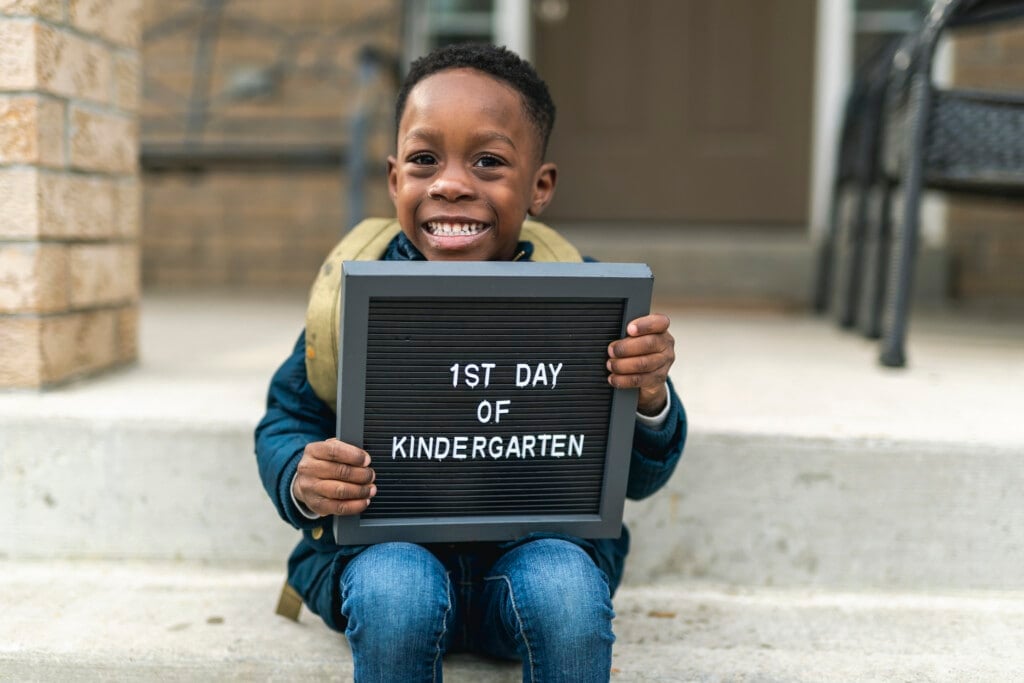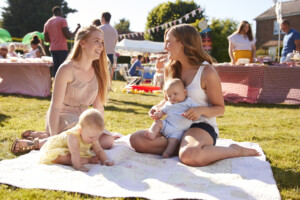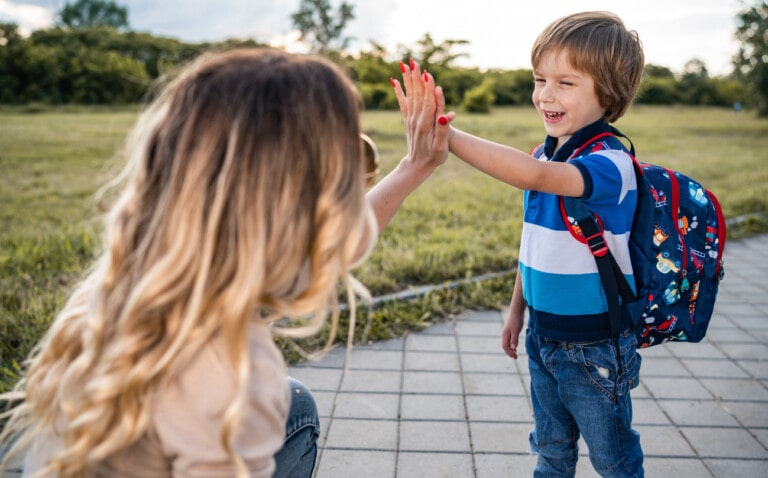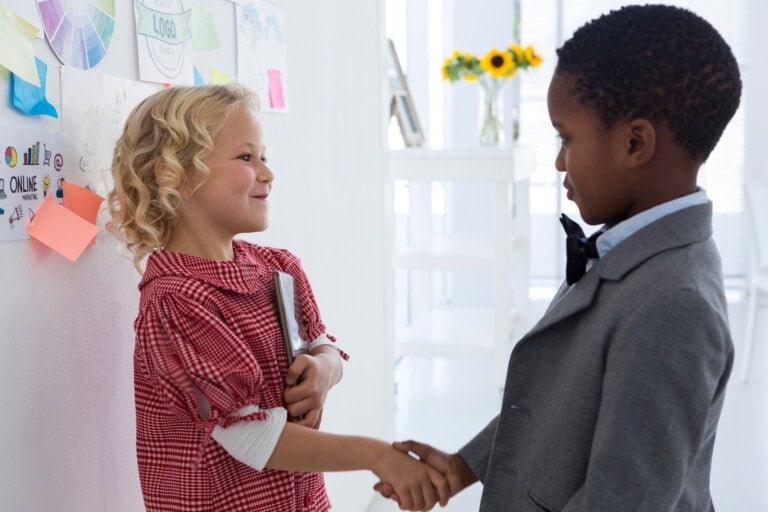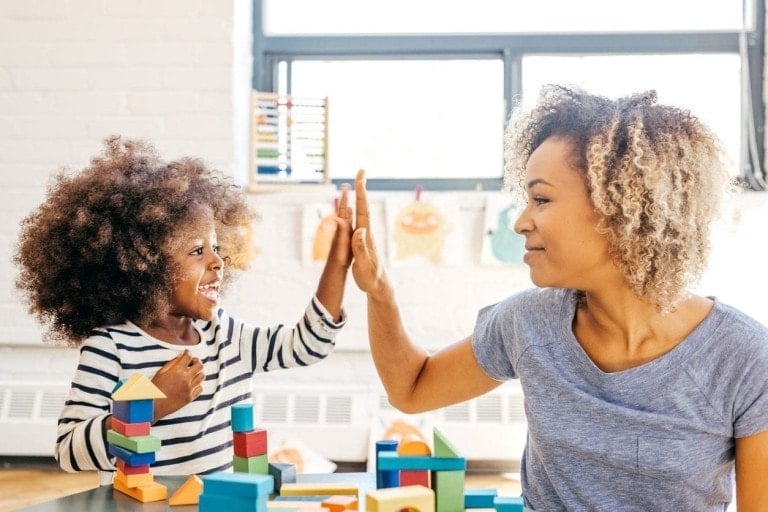As parents, there are certain milestones in your child’s life that you can’t prepare for. Those moments can feel isolating, stressful, and even downright chaotic. But there are so many moments in parenthood where preparation is key. It can make all the difference in the world for both you and your child.
Ready for Kindergarten . . . Or Not?
Starting kindergarten is a wonderful milestone for children and adults alike. Children are learning to be more independent and feel like a part of the school community. Academically, they are thriving and consuming information at a rapid pace.
Parents experience this milestone as well, albeit in a different way. Some parents may be alone during the day for the first time without the chatter and activity of their mini-me to fill their day. Others may finally be ready to pay off those hefty daycare bills and celebrate the second the school bus drives away.
Regardless of your situation, the important milestone of beginning kindergarten paves the way for your child’s learning and growing for years to come. But how do you know they are ready? How do you gauge your little one’s kindergarten readiness? Read on to learn how you can help your child feel equipped and confident so that you and your child will rock kindergarten!
Excited to Learn
One of the most important things you can do as a parent is to instill a love of learning, exploring, and curiosity in your child. Kindergarten teachers aren’t expecting your child to come in on the first day of school able to read and write chapter books. Instead, they are looking for children who enjoy learning, respond with excitement to new ideas and projects, and nurture their curiosity by asking questions and exploring the world around them. Parents can curate an environment at home that sparks interest around school. This cues your child that school is something to get excited about, too.
Erin Fuschetti, a kindergarten teacher in central New Jersey, elaborates on this critical point by sharing, “The biggest thing I look for in children when they are ready to enter kindergarten is their desire to learn. When a child is excited and eager to learn, they will truly get the most out of kindergarten and their schooling experience. As a kindergarten teacher, my first goal is to help spark the love of learning in my students. If a kindergartener is excited and wants to learn, they will master everything they need to learn in kindergarten to be successful when they move on to first grade.”
Yes, teachers can (and will!) spark the joy and love of learning at school with their students. But laying the groundwork and foundation for your child can start from day one at home with your newborn. Parents modeling enthusiasm for learning in day-to-day life will become second nature for your child once they are ready to begin kindergarten.
Mastering Basic Tasks
Preparing your child for kindergarten can be helpful by ensuring they can master a few basic tasks. It can make a huge difference in a kindergarten classroom if the students can do certain things. For instance:
- velcro/tie their shoes
- put on and zip up their coat
- maneuver their backpack
- be able to open and close their lunchbox
While teachers will certainly help their classes with these tasks, it can become difficult to accommodate many students at once in a timely manner. Keep in mind that a teacher may have over 20 five-year-olds to assist at one time. So, helping your child become independent and able to do these tasks independently assists the teacher and allows your child to practice handling their individual tasks of daily living.
It is also paramount that your child can appropriately use the bathroom independently and knows the importance and practice of washing their hands thoroughly. This basic skill is essential in any environment. But in the petri dish environment commonly known as elementary school, it becomes more important than ever. Teachers, parents, and students will all benefit from members of the classroom knowing how to keep germs at bay.
Mastering Basic Skills
As mentioned above, kindergarten teachers aren’t looking for your son or daughter to come in on the first day of school, wowing them with their math facts or beautifully crafted sentence structure. However, having a few basic skills mastered will go a long way in helping your child transition seamlessly into kindergarten.
Simple things such as:
- writing their first and last name
- counting/recognizing numbers
- recognizing letters
- being able to hold a pencil/crayon to write/color
These are great ways for your child to come into kindergarten confident and ready with a foundation on which to build skills. Don’t feel these skills have to be perfect, either! Simply exposing them to these new topics and having them be somewhat familiar to your child will help their academics and self-esteem as they continue to grow and learn.
Parents can also help their child practice multi-step directions, an oft-used skill in kindergarten. Your child should be coming into kindergarten able to follow a direction and then build on that first direction with the next task to follow. For example, ask your child to pick a book to read at bedtime. Once your child can do that easily, expand on that skill for the next time, asking your child to pick out a book to read at bedtime and then point to the book’s title. Working on multi-step directions will be crucial for your child as they navigate listening to the teacher’s directions and understanding what they are expected to do next.
Good Classmate Behavior
One of the most important aspects of being ready for kindergarten is those soft skills that help your child be the best version of themselves. These skills will help your child make friends, be a good friend to others, and show respect for the learning environment.
Parents can help by modeling and enforcing good manners at home and ensuring their child is well-versed in sharing and taking turns. Much of kindergarten is play-based. Having your child come to kindergarten knowing these important manners and traits will benefit all in the room.
Furthermore, as parents, you can help your child be curious about others around them and teach them to ask questions to get to know them better. Morning meetings are commonplace in the kindergarten setting, where the students in the class share important updates about their lives and practice interacting with one another. Working with your child at home will be a great way to allow your child to put those skills to good use in the kindergarten setting. Use opportunities like mealtimes to engage in a give-and-take conversation. Ask open-ended questions that help your child elaborate on their response. Avoid yes or no questions and ask various questions that require thought-provoking responses.
Ready, Set . . . Kinder!
Sending off your sweet baby to kindergarten is undoubtedly daunting. Both parents and children alike may have trepidation surrounding this next chapter. Helping your child feel more equipped with academic and essential life skills will help ease the stress surrounding this monumental event. Working on the suggestions above will go a long way in making sure your little one is ready for kindergarten!
Avoid comparing your child to others and instead focus on what your child needs to feel safe and comfortable for school. Keep an open dialogue with your child’s kindergarten teacher and trust they know what they are doing. You and your child are embarking on a journey that will lay the groundwork for years of learning. A solid foundation in kindergarten will set them up for a lifetime of success.













